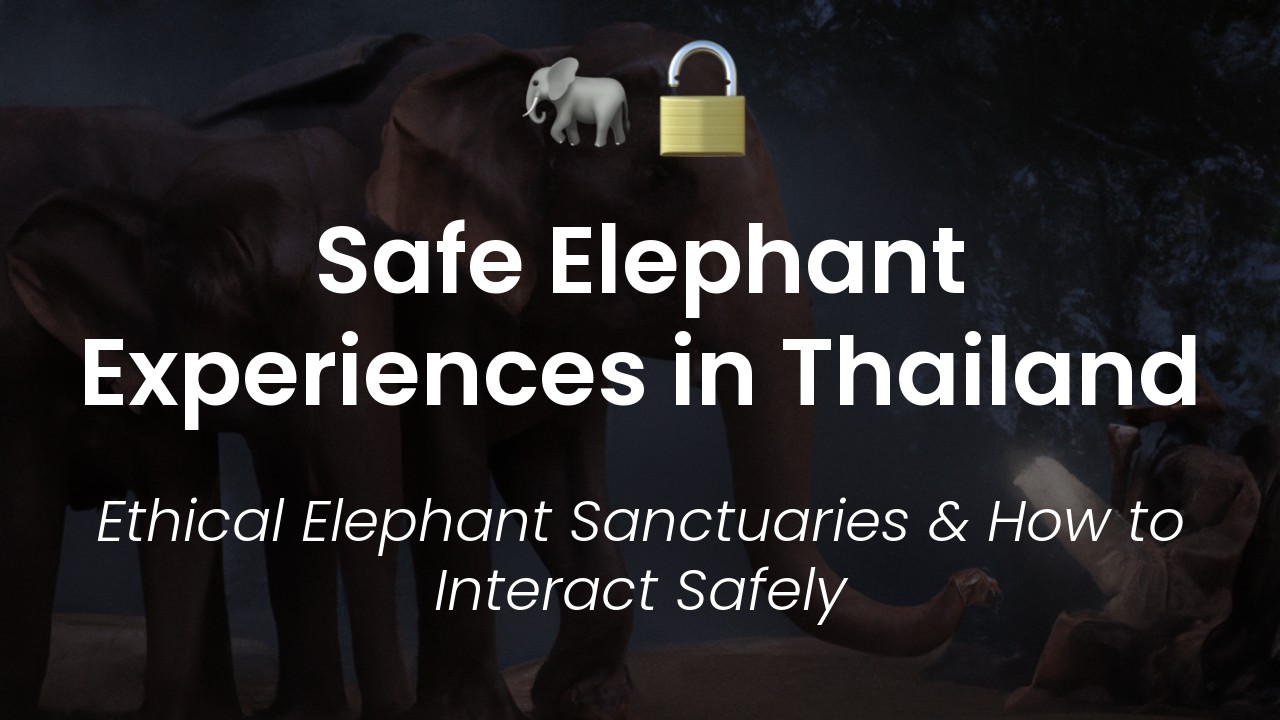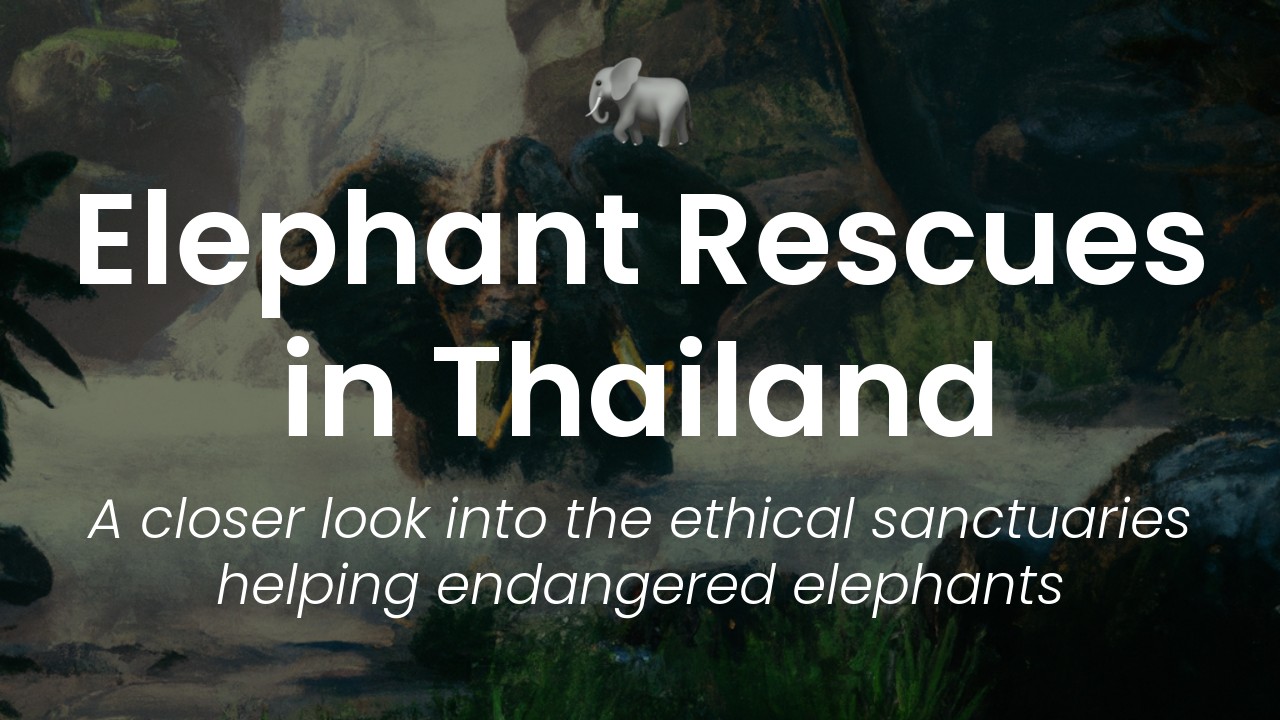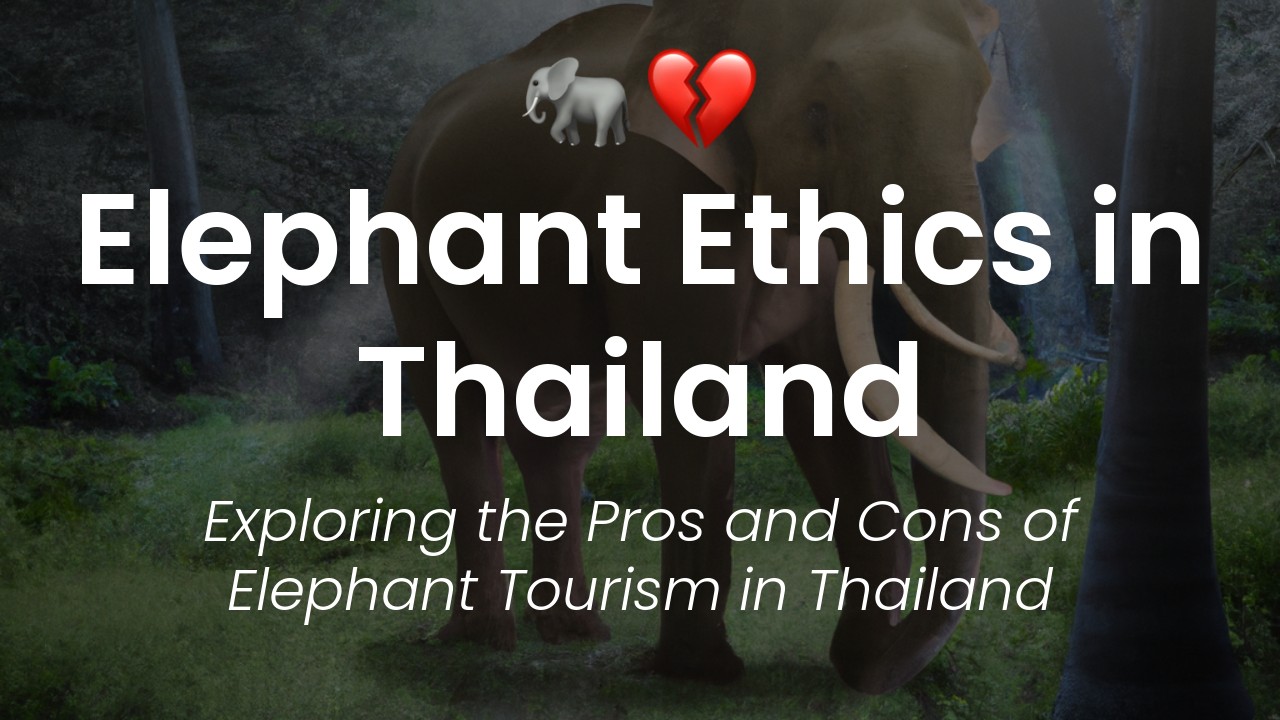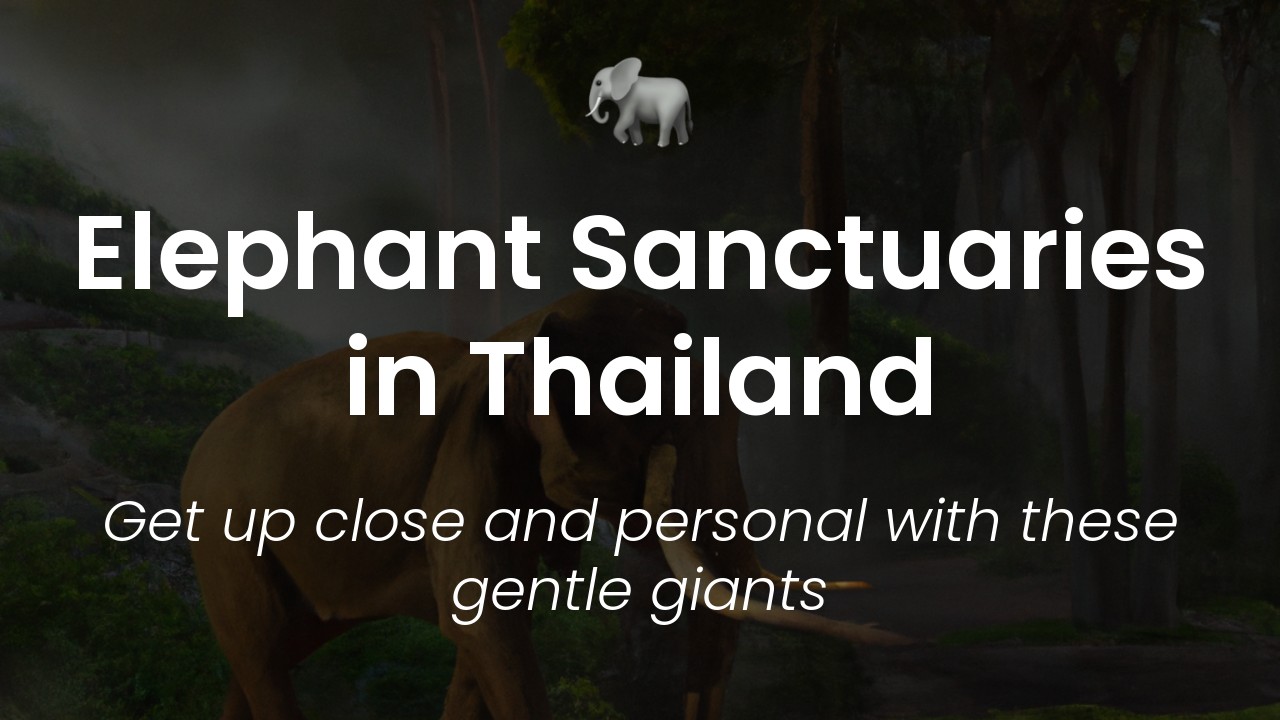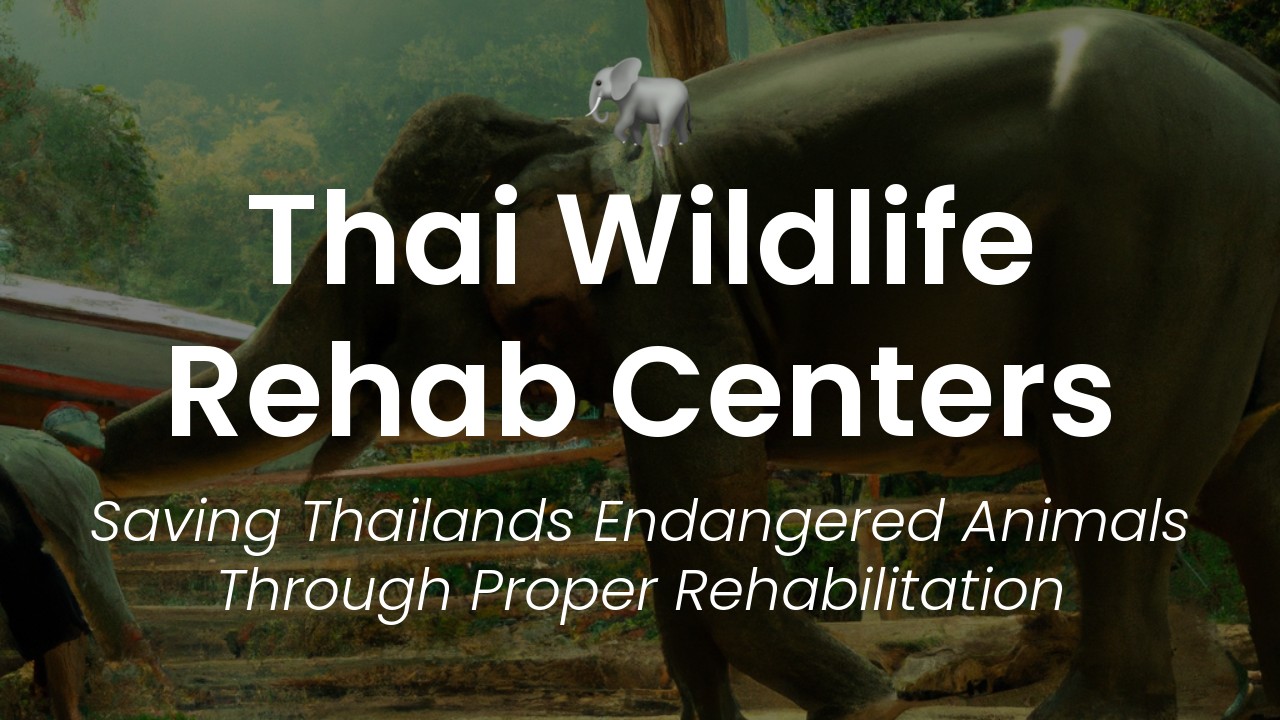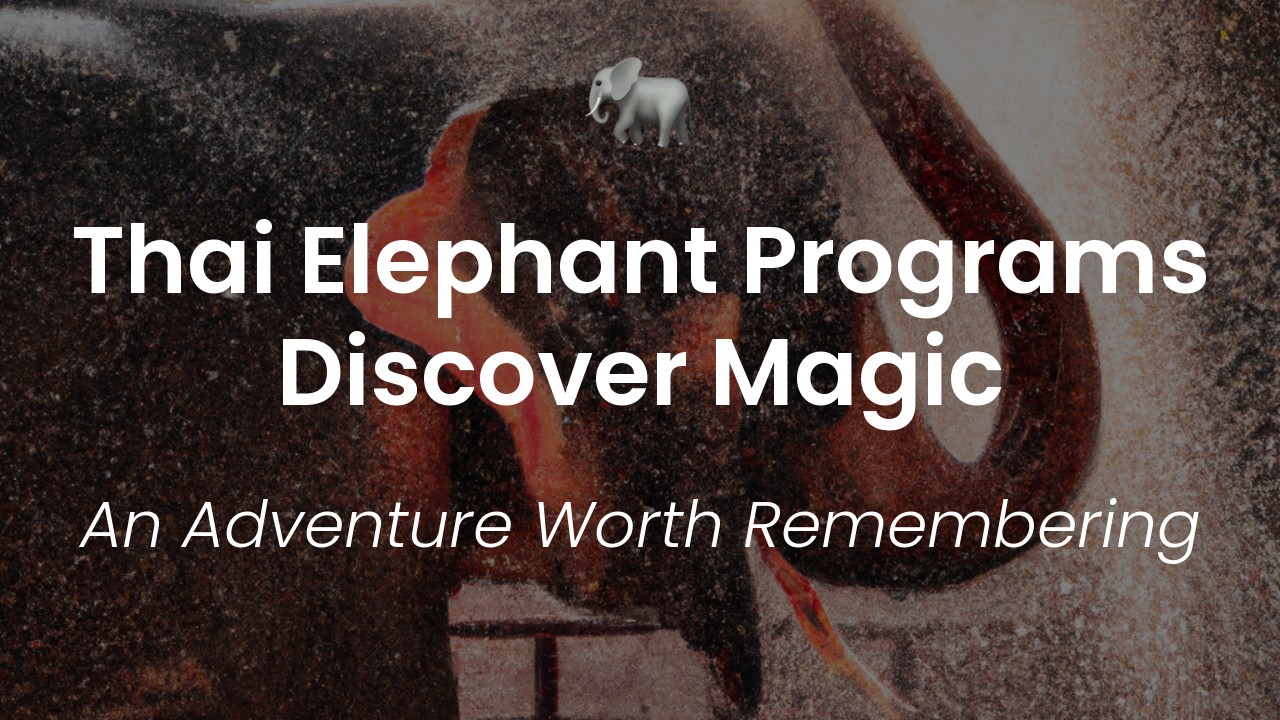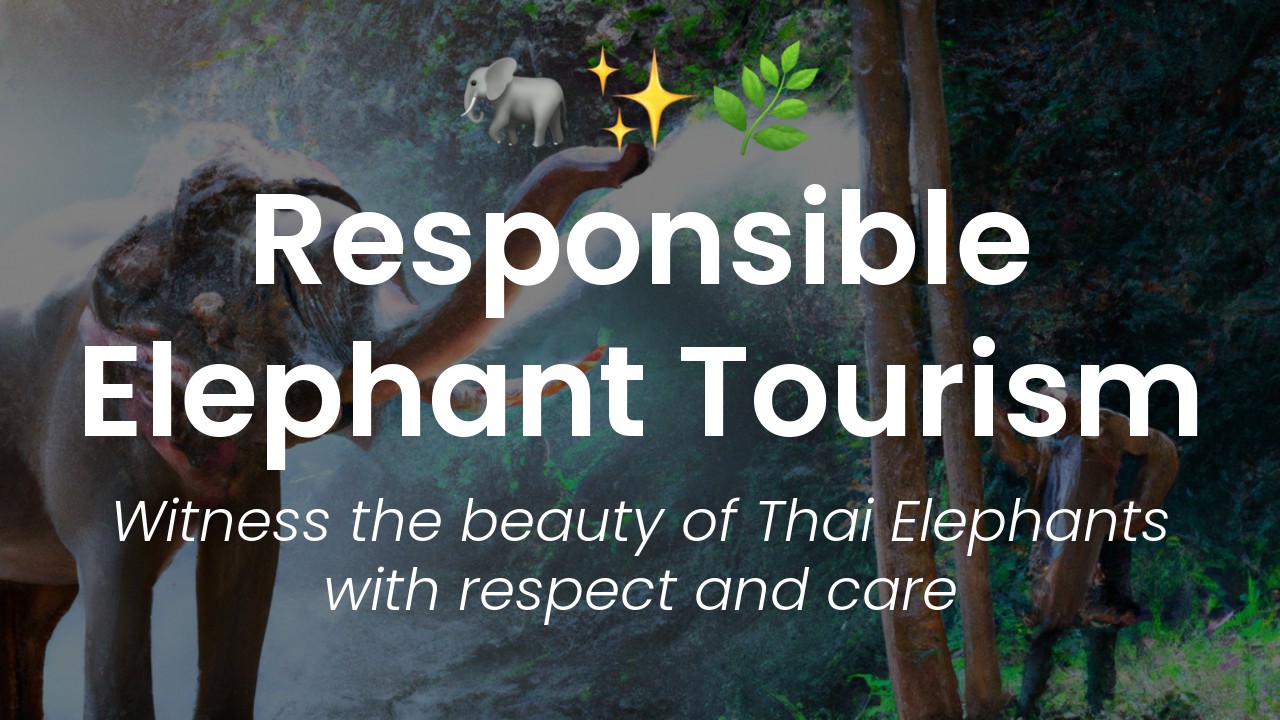I have always been fascinated by the majestic beasts that roam the forests of Thailand. And when it comes to elephants, they hold a special place in my heart. These magnificent creatures have played an important role in Thai culture and traditions for centuries. From carrying royalty to working in the logging industry, elephants have been a part of the country's way of life for a long time. However, unfortunately, this has also led to the exploitation and mistreatment of these animals.
As a responsible traveler and a Thai citizen, I believe that it is our collective responsibility to ensure that we are not contributing to the exploitation of elephants. There are plenty of ways to have an ethical and sustainable elephant encounter in Thailand, one that will leave both you and the animal happy and safe.
In this article, I want to share with you some of the lesser-known, vital information that you need to know before signing up for elephant experiences. Whether it's taking a stroll with elephants, feeding them, or bathing them, there are a few things to keep in mind to ensure that you are not perpetuating the cruel practices of elephant exploitation in Thailand. Let's dive together into the fascinating world of elephant tourism in Thailand and uncover the secrets that lie within.
Elephant Tourism in Thailand
Elephant tourism is a popular and lucrative industry in Thailand. Tourists from all over the world travel here every year, eager to get up-close-and-personal with these magnificent creatures. However, not all elephant experiences in Thailand are created equal, and some are downright exploitative.
As someone who cares deeply about the welfare of animals and preserving Thailand's natural beauty, it's important to me that visitors have safe, positive, and ethically sound interactions with elephants. In this article, I'll share my insights on how to choose a responsible elephant experience while traveling in Thailand.
Ethical Concerns
Before you book an elephant experience, it's important to understand the ethical concerns surrounding elephant tourism in Thailand. Historically, many captive elephants in Thailand were used for logging, transportation, and even war. But as these industries declined, many elephants were left without work or the means to support themselves.
As a result, tourism became the next big industry for elephants in Thailand. However, this boom in elephant tourism created its own set of problems. Many elephants are overworked, mistreated, and kept in inhumane conditions. In some cases, elephants are taken from the wild and forcibly trained to perform for tourists.
Choosing a Responsible Elephant Experience
So, how can you tell which elephant experiences in Thailand are responsible and ethical? Here are some tips to help you choose a responsible elephant experience:
Go to an Elephant Sanctuary
Elephant sanctuaries are facilities that focus on rescuing elephants from abusive situations and providing them with a safe haven. These sanctuaries do not allow elephant riding, and visitors are not allowed to touch or bathe the elephants.
Look for a Facility with Reasonable Work Requirements
Elephants in Thailand should not be overworked or mistreated. Look for a facility that has reasonable work requirements for its elephants, like limiting the number of tourists that can interact with them each day.
Research the Facility's Elephant Training Methods
Some elephant camps in Thailand use brutal training methods like the Phajaan, or "crush." This involves separating baby elephants from their mothers and beating them until they submit to human control. Look for facilities that use positive reinforcement to train their elephants instead.
Support Conservation Efforts
Choose facilities that support elephant conservation efforts, like reforestation and anti-poaching initiatives. These facilities are committed to preserving not only the elephants themselves but also their natural habitats.
Interacting with Elephants Safely
Once you've found a responsible elephant experience, it's important to interact with the elephants safely. Here are some tips to keep in mind:
Follow the Guide's Instructions
The guides at your elephant experience are there to keep you and the elephants safe. Follow their instructions carefully, especially when approaching the elephants.
Respect the Elephants' Space
Elephants are wild animals, and you should always give them plenty of space. Don't get too close or try to touch them without permission.
Avoid Sudden Movements
Sudden movements can startle the elephants and put you in danger. Move slowly and deliberately around the elephants.
Watch for Warning Signs
Elephants will often give warning signs when they're feeling threatened or uncomfortable. These may include flapping their ears, trumpeting, or swishing their tails. If you see any of these signs, back away slowly.
Elephant Training and Control Methods
In Thailand, there are two main methods for training and controlling elephants: the traditional "mahout" system and the more recent use of bullhooks.
Mahouts
Mahouts are elephant trainers who work closely with their elephants from birth. They develop a deep bond with their elephants and use positive reinforcement to train them. Mahouts are highly respected in Thai culture, and many believe that the bond between a mahout and elephant is sacred.
While the mahout system can be used ethically, it has increasingly come under scrutiny in recent years due to some mahouts using abusive techniques like the Phajaan.
Bullhooks
Bullhooks are sharp, metal hooks that are used to control elephants. Trainers often use the bullhook to hit sensitive spots on an elephant's body, causing pain and discomfort. This method of control is highly controversial and is considered a form of animal cruelty by many activists and animal welfare organizations.
Supporting Elephant Conservation Efforts
In addition to choosing a responsible elephant experience, you can also support elephant conservation efforts by making a donation to a conservation organization. There are many organizations that work to protect elephants and their natural habitats in Thailand, like the Golden Triangle Asian Elephant Foundation and Wildlife Friends Foundation Thailand.
By supporting these organizations, you can help ensure that elephants in Thailand have a safe and sustainable future.

